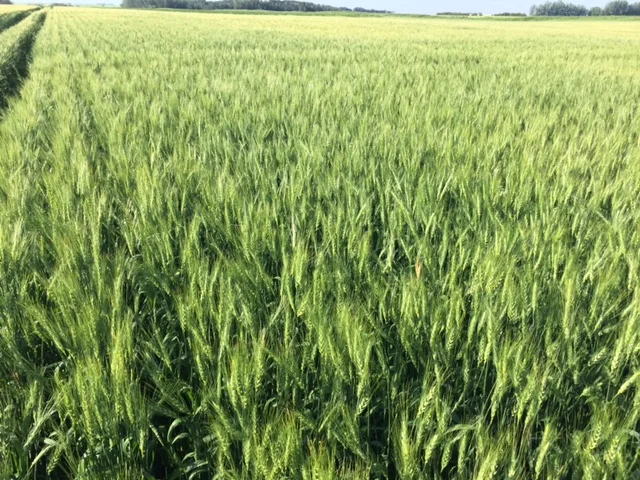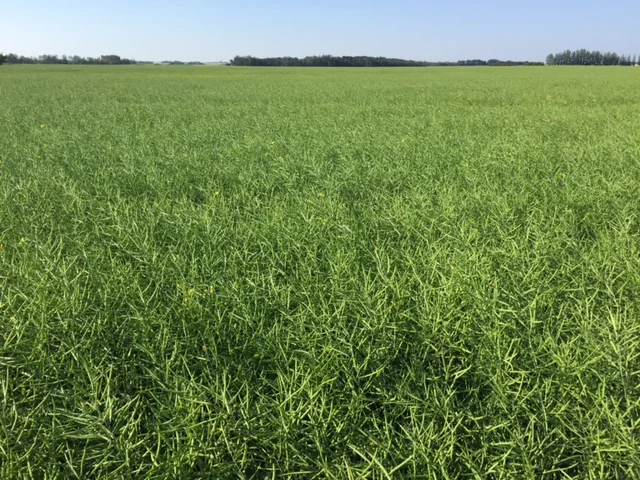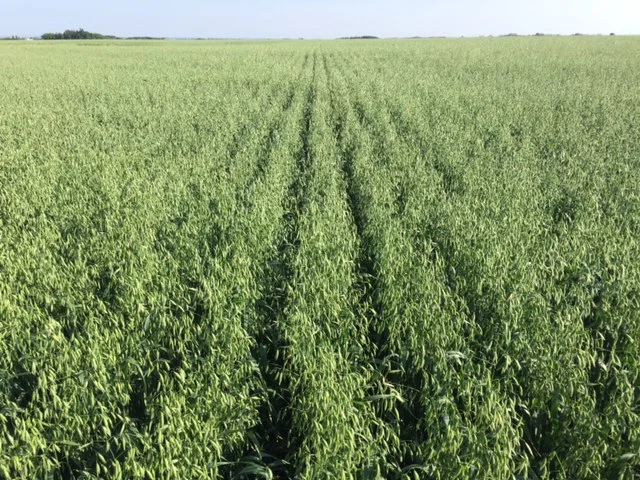
Crop Aid Plus ™
Crop Aid Plus is a highly effective carbon-based biostimulant. It is a liquid solution formulated to enhance and promote beneficial micro-organisms in the soil by activating and stimulating native biology. It also acts as a fertilizer catalyst, maximizing the availability of applied fertilizer by reducing loss and soil tie up.
As of June 2020, the name Crop Aid Soil has been changed to Crop Aid Plus ™
PRODUCT SAFETY DATA SHEETS (2025):
-
rop Aid Plus ™ contains a unique blend of Lignin Extract, Kelp extract, Zinc, Iron, Manganese, and Boron. It is safe to mix with most herbicides, fungicides and insecticides, however, jar tests are always recommended.
Crop Aid Plus ™ can help crops exposed to unfavourable conditions such as:
Low microbial activity
Compaction and Hard Pan
Poor soil texture
Unbalanced soil pH
Unbalanced soil nutrients
Moisture availability
Disease
Insects
Temperature
Organic matter level
-
It comes in the following container sizes:
10L jugs (2.6 US gal)
500L totes (132 US gal)
1000L totes (264 US gal)
-
It is recommended that Crop Aid Plus ™ be applied onto soil or plants with a sprayer or directly into the soil by an injection system or liquid fertilizer applicator. It is suitable for all crops, alfalfa, alfalfa, pasture, and hayland by conventional sprayer or aerially applied.
Crop Aid Plus™ is recommended to be applied 2-3 during the growing season at a rate of 250 ml/acre (8.5 US oz/acre) per application. Crop Aid Plus ™ is recommended for all soil types and crops.
Timing
In the Spring at a rate of 250 ml/acre (8.5 US oz/acre)with:
pre seeding or post harvest
inject in soil at seeding with liquid fertilizer
post seeding with herbicide
A 2nd application of 250 ml/acre (8.5 US oz/acre) should be applied in crop when spraying the in-crop herbicide.
A 3rd application of 250 ml/acre (8.5 US oz/acre) can be applied with fungicide application.
Spray alfalfa, pasture and hayland in the spring when plants are starting to green up and are actively growing. You can also spray an application after the first cut when the alfalfa starts to regrow.
What is lignin and why is it beneficial when applied to the soil?
High source of carbon.
Encourages the activation and growth of beneficial microorganisms in the soil.
Acts as a fertilizer catalyst reducing the loss and soil tie up of soil-applied fertilizers.
Increases fertility of soil.
Helps to loosen and aerate the soil, reduces compaction and improves moisture holding capacity.
Aids in building up the plants defences against disease and pests.
Helps to reduce the population of soil born pathogens.
Strong chelating characteristics, enhancing plant nutrient absorption by plant roots.
Increases plant growth by stimulating life in the rhizosphere.
Increases plant health.
Increase yield & seed quality.
Why we use Kelp?
For centuries, farmers have known the value of kelp.
Kelp is able to extract many inorganic substances available in the ocean and convert these inorganic compounds into organic compounds, making kelp solution an outstanding source for these compounds.
To produce a good crop, you must prepare the soil to nurture the millions of tiny feeding roots.
Kelp solution both feeds plants and enriches the soil rhizophere with a wide variety of nutrients, conditioners and growth stimulants. The elements that kelp and kelp extracts provide are known to promote strong plants and healthy growth. They also naturally increase plants’ resistance and tolerance to all kinds of stressful conditions.
Improve crop quality with kelp solution
Increases in the health of plants, and improved crop quality, can both be achieved through the use of kelp solution. These claims have been proven to be true by commercial kelp product users. Additionally, research shows more benefits when kelp products are used including:
Faster seed germination.
Increased growth of new plants started from cuttings and seeds.
Healthier, more uniform, and stronger plant growth.
Increased tolerance to abiotic stress.
A better quality harvest and safer storage with less waste.
The increased bioavailability of other nutrients usually trapped in the soil.
Why is Kelp Beneficial?
Kelp extracts act as bio stimulants of plant growth and development. We include kelp extracts in our Crop Aid Plus™, Crop Aid Seed and Crop Aid Seed Plus nutrition solutions.
Promotes growth of beneficial soil microbes and boosts microbial activity.
Increases nutrient uptake by roots.
Improves soil structure and aeration of soil.
Acts as a bio stimulant, and enhances seed germ and vigour.
Acts as a chelator and improves utilization of minerals.
Increases nutrient availability to crops.
Increases plants resistance to stressful conditions including disease, insects and other stressors.
Increases plant growth, increases yield, increases flower set, increases seed production, improves propagation of seedlings and cuttings, and increases crop quality.
Durum crop treated with Crop Aid Seed, Crop Aid Plus™ and Crop Aid Foliar
Canola crop treated with Crop Aid Plus™ and Crop Aid Foliar
Oat crop treated with Crop Aid Seed, Crop Aid Plus™ and Crop Aid Foliar






